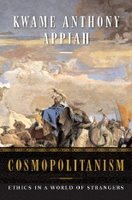I thought first, for some reason, of An Instance of the Fingerpost by Iain Pears, which is set in England in the period of the Civil Wars. The book conveys wonderfully a sense of a life pervaded by the religious authority of the state...and the fear induced by that authority. Khaled Hosseini's The Kite Runner gives one a vivid sense of the contrast between Afghanistan before and after the Taliban came to power. (And one shouldn't forget Voltaire's depiction of life under the Inquisition in Candide.)The New York Times reviewer called An Instance of the Fingerpost "a compendious historical pageant set among 17th-century clergymen, scholars and politicians concerned with the natural and the supernatural in roughly equal measure," and praised it as of similar quality and interest as Umberto Eco's The Name of the Rose.
The Kite Runner is Khaled Hosseini's debut novel and has enjoyed wide praise. Click here to read Hosseini's account of how he, like his protagonist in The Kite Runner, journeyed back to Afghanistan from his life in California.
At the time of its initial circulation in Paris, religious officials pronounced Candide "full of dangerous principles concerning religion and tending to moral depravation." Later, the critic Madame de Staël called Candide a work of "infernal gaiety" by a writer who laughs "like a demon, or like a monkey at the miseries of this human race with which he has nothing in common." No one reads Madame de Staël today, but everyone who has read Candide can't help but remember it whenever they hear someone--usually someone not among the victims--claim that a natural disaster happened for "the best."
K. Anthony Appiah is Laurance S. Rockefeller University Professor of Philosophy at Princeton University.
He was born in London (where his Ghanaian father was a law student) but moved as an infant to Ghana, where he grew up. He was educated at Cambridge University. His dissertation explored the foundations of probabilistic semantics; once revised, these arguments were published by Cambridge University Press as Assertion and Conditionals. Out of that first monograph grew a second book, For Truth in Semantics.
Professor Appiah has also published widely in African and African-American literary and cultural studies. In 1992, Oxford University Press published In My Father's House, which deals, in part, with the role of African and African-American intellectuals in shaping contemporary African cultural life.
In 2003, he coauthored Bu Me Bé: Proverbs of the Akan (of which his mother is the major author), an annotated edition of 7,500 proverbs in Twi, the language of Asante. He is also the author of three novels, of which the first, Avenging Angel, was largely set at Clare College, Cambridge.
But his major current work has to do with the philosophical foundations of liberalism. His introduction to contemporary philosophy entitled Thinking It Through was published in 2004. The Ethics of Identity was published last year and Cosmopolitanism: Ethics in a World of Strangers in 2006.
Of cosmopolitanism he writes:

I am urging that we should learn about people in other places, take an interest in their civilizations, their arguments, their errors, their achievements, not because that will bring us to agreement but because it will help us get used to one another -- something we have a powerful need to do in this globalized era. If that is the aim, then the fact that we have all these opportunities for disagreement about values need not put us off. Understanding one another may be hard; it can certainly be interesting. But it doesn't require that we come to agreement.Thanks to K. Anthony Appiah for the recommendations.
For the novels about life under theocracies suggested by Joseph Epstein and Todd Gitlin, click here.
--Marshal Zeringue





